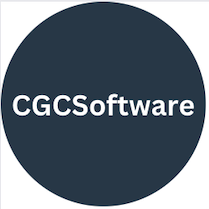The Being Freelance podcast
A few years ago, after working for myself for a couple of years I found these vlogs by a freelancer called Steve Folland. These vlogs showed his life as a freelancer, and the hard work it involved, not only doing the day-to-day work of his business but also managing his business along with managing his family life. It was a great insight into what life really is like for a single-person business owner.
Along with these vlogs, Steve also has a podcast, the Being Freelance podcast, in which he interviews a different freelancer each week to see what it’s like for them to be freelance. He’s nearly (at the time of writing this) at 300 episodes. There are episodes with copywriters, designers, sound engineers, web developers, and all sorts of jobs, but everyone is a freelancer, someone working hard to make a go at running their own business.
In each episode, Steve discusses with the guest how they got started working for themselves, what it’s been like since they started, how they go about finding work and how they balance the amount of work needed to run their own business with having a life. Each episode is full of fantastic advice and helpful tips from each guest. No matter what they do, even if it’s not what you do, you can still get a piece of helpful advice from each episode.
Not only does Steve run his own business and a podcast, but he also runs the Being Freelance Facebook group, where freelancers can get together to talk about freelancing, ask questions, help one another and occasionally arrange meet-ups with one another. He also runs another podcast called the Doing it for the Kids podcast where he, along with his co-host Frankie, talks about running your own business when you have young children and how to balance the two.
I’ve learnt many things from listening to the podcast, from the importance of being consistent with the message you put out there, to making use of sites like LinkedIn and Twitter to promote yourself and your business. How important it is to connect with others and be as helpful as you can, as you never know what effect that can have in the future. Many times a freelancer has helped on a project, which has led to other work opportunities.
So if you are thinking of working for yourself, going freelance, or just started, or have been freelance for a while I highly recommend the Being Freelance podcast, it’s full of great insight and stories from people who may have just started or been working as a freelance for years. It’s all great advice, as Steve says, it’s not about what they do it’s all about being freelance.
(As a bit of side note I was lucky enough to be a recent guest on the podcast, so if you want to hear me um and ah and learn about how I went freelance, then you can.)


